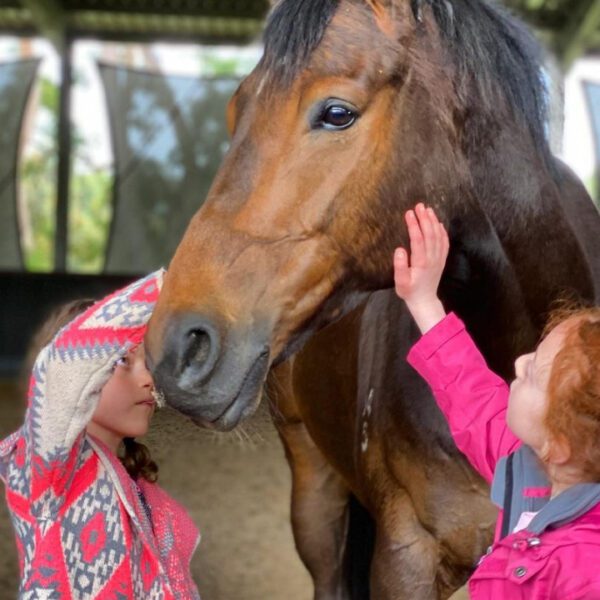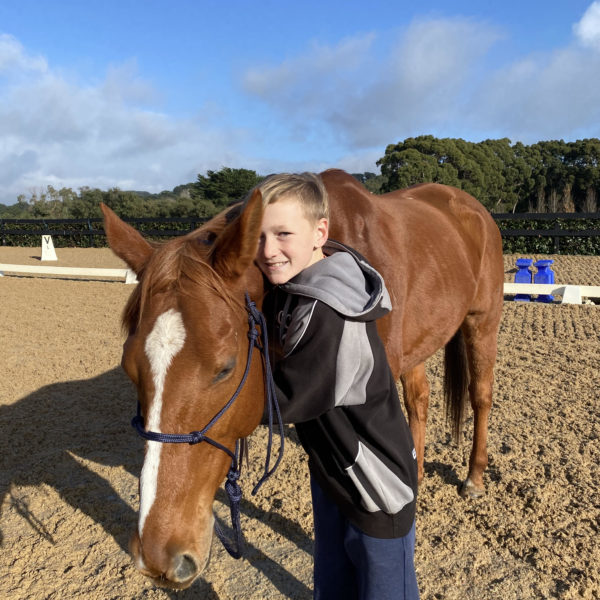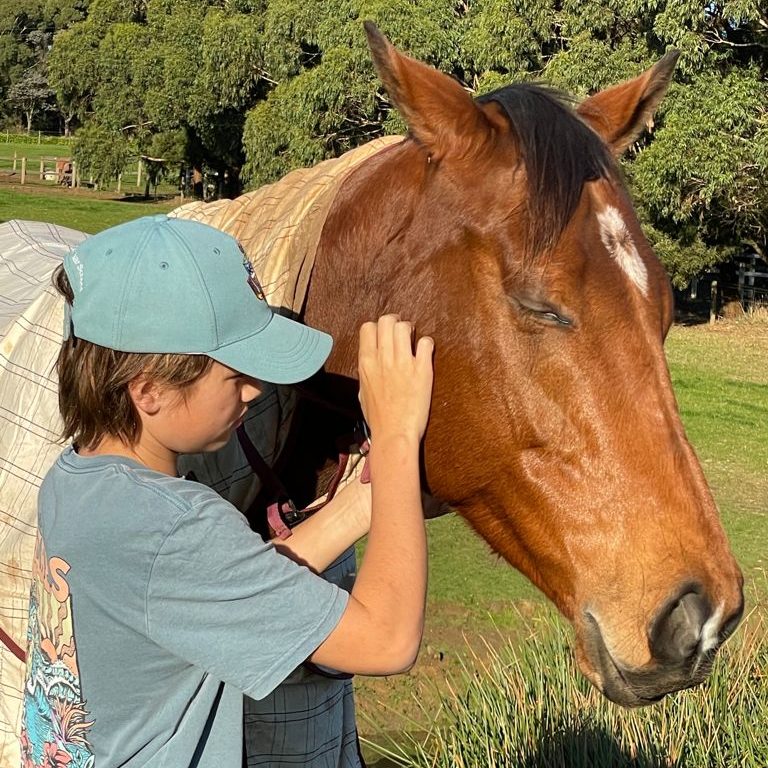How does the therapy work?
Our therapists are AHPRA-registered clinical, or child and developmental psychologists, and they all have significant experience of horses.
We can work with a broad range of mental health issues, including:
- Anxiety
- Depression
- Low self-confidence
- Autism Spectrum Disorder
- Behavioural issues
- Trauma and PTSD
Clients typically attend around 10 sessions, and in that time may learn to manage their anxiety, build their confidence, improve their self-esteem, manage their feelings, and develop the social skills they need to lead a more fulfilling life.
Families are involved throughout therapy, and our clinicians will also liaise with other relevant parties – like schools and support workers – to ensure that every young person is completely understood.
Will my child get to ride a horse in their sessions?
At Rehab4Rehab all Psychology, OT and Speech Pathology sessions are conducted from the ground. Equine-assisted therapies typically do not involve riding the horses unless there is a sound clinical rationale to include riding in the treatment plan. Ridden sessions require the therapist to have specific additional training and insurance, and also require additional staff or volunteers for safety reasons.
If your child would like to ride a horse, please speak to your therapist or to Leanne our Clinic Manager. Our Founder, Alisha, is happy to organise a time for your child to ride one of our therapy horses or ponies under her guidance and supervision for around 15 minutes as a special treat.
Alternatively, we can suggest a number of riding schools in the area where your child can learn to ride in a professional and safe environment.
Adult Equine Assisted Therapeutic Support Services
Equine Assisted Therapeutic Support Services For Adults, Individual & Group based available.
Research displays horses have the ability to read emotions & expression across species barriers. Horses are a socially sophisticated species able to reflect human behaviour, emotion & energy.
Through Equine Therapeutic Sessions, we work with our Rehab4Rehab Trained Therapy Horses in either one-on-one or group-based sessions facilitated by AHPRA Registered Psychologists & Multi-disciplined Health Professionals.
Our Equine Assisted Therapeutic Support Services can provide assistance with the following but not limited to:
- Promoting Mental & Physical Health
- Assisting with Anxieties
- Positive Behaviours Support
- Promoting Head Space
- Promoting concentration levels
- PTSD
- Boosting Confidence
- Maintaining a Calm Relaxed State of Being
- Leadership Programs
- Promoting People/ Interpersonal Skills
- Promoting Social Inclusion
Here lists just a few specifics our Equine Assisted Therapeutic Support Services can provide assistance with.
Working with therapy horses in general provides the promotion of mental & physical health by learning to connect into innate skills & developing here within through the nature of emotional expression recognition reflective behaviours.



How does the process work?

Step 1
Welcome
Welcome – Thank you for considering our services to support the mental health of your young person. Please call our friendly reception team to discuss your needs 1800 GO REHAB and book an appointment. You can also visit our FAQ page for more info.

Step 2
Download the relevant consent and intake forms below, and email them to psychology@rehab4rehab.com.au

Step 3
Watch our welcome video with your young person so you can meet our team, our gorgeous four legged friends, see what our facility is like and get an idea of what to expect. (Video coming soon!)

Step 4
Attend your appointment – nice to meet you!
Did you know?
“Mental illness is very common. One in five (20%) Australians aged 16-85 experience a mental illness in any year. The most common mental illnesses are depressive, anxiety and substance use disorders.”
“The onset of mental illness is typically around mid-to-late adolescence and Australian youth (18-24 years old) have the highest prevalence of mental illness than any other age group.” This is WHY we need to get in early to support young people.
“Access to treatment is essential as approximately 75% of people admitted to public sector mental health inpatient services improve notably. In particular, primary mental health care services are central in addressing signs of mental illness in children and young people with appropriate treatment providing both immediate and long-term positive outcomes.” We CAN do this together, but we need YOUR support!

